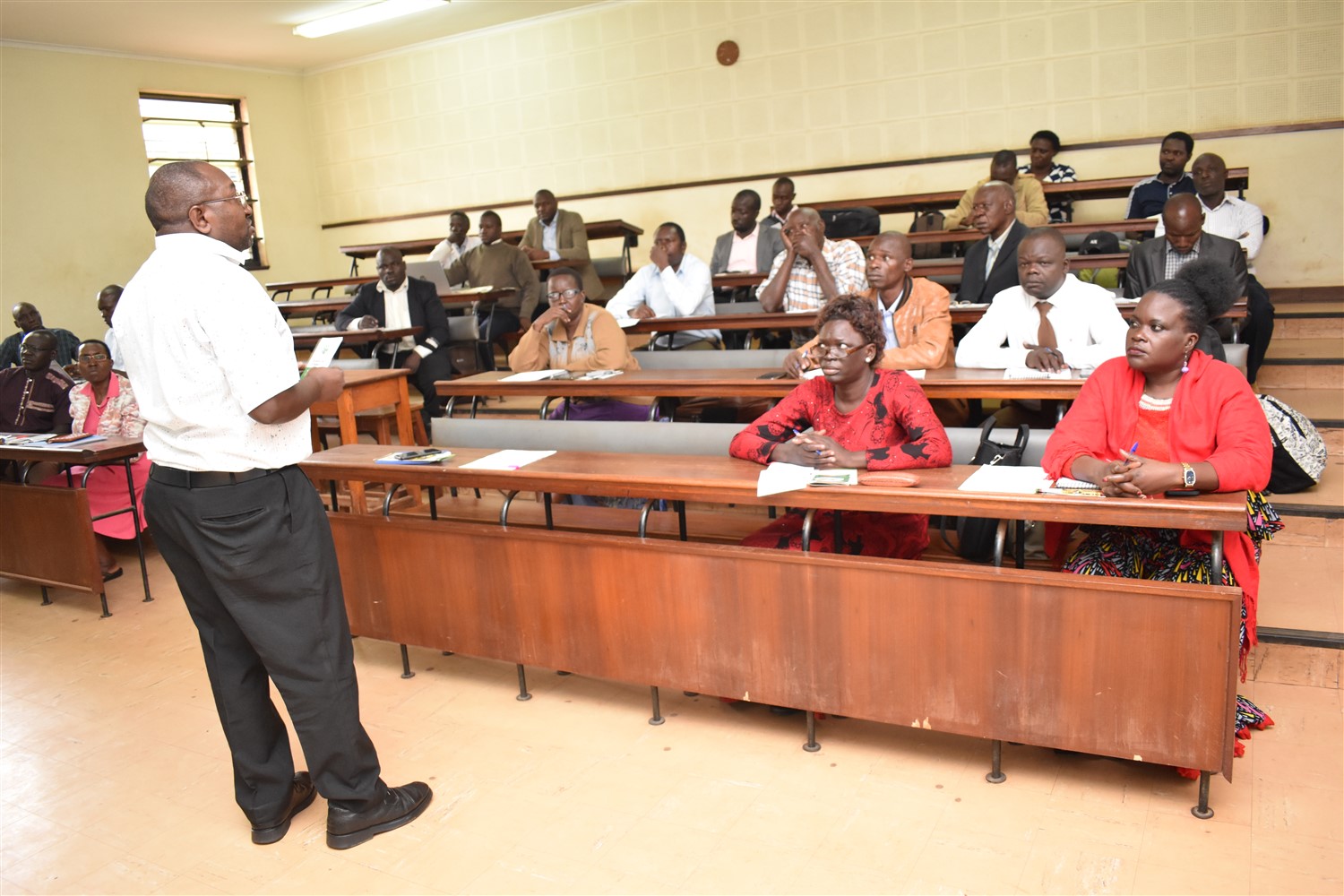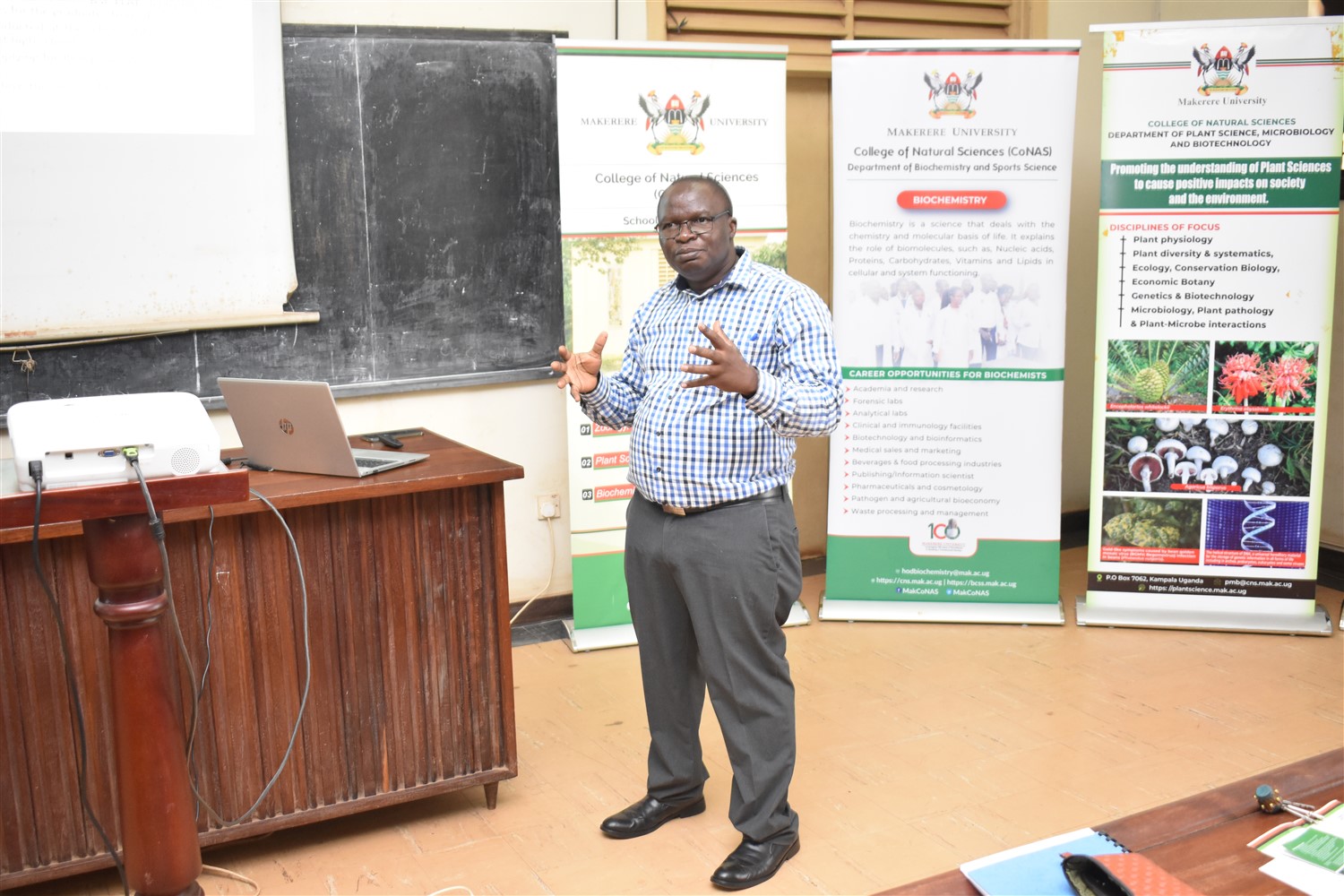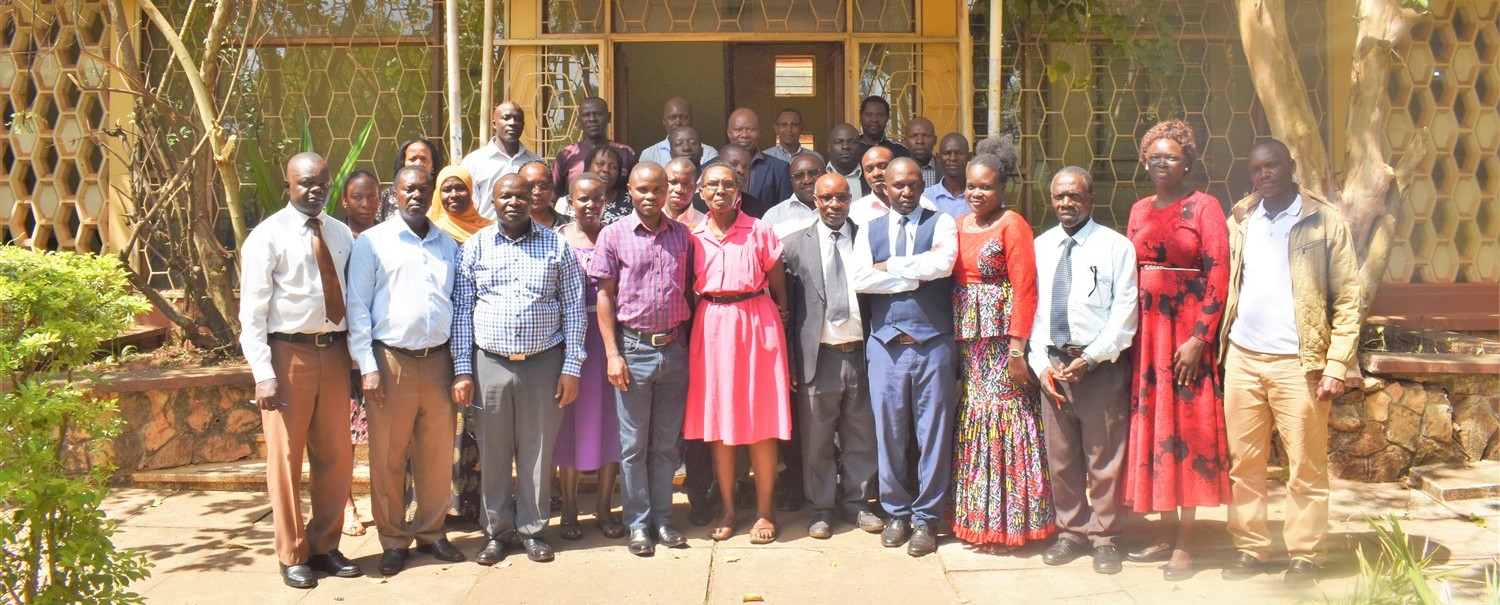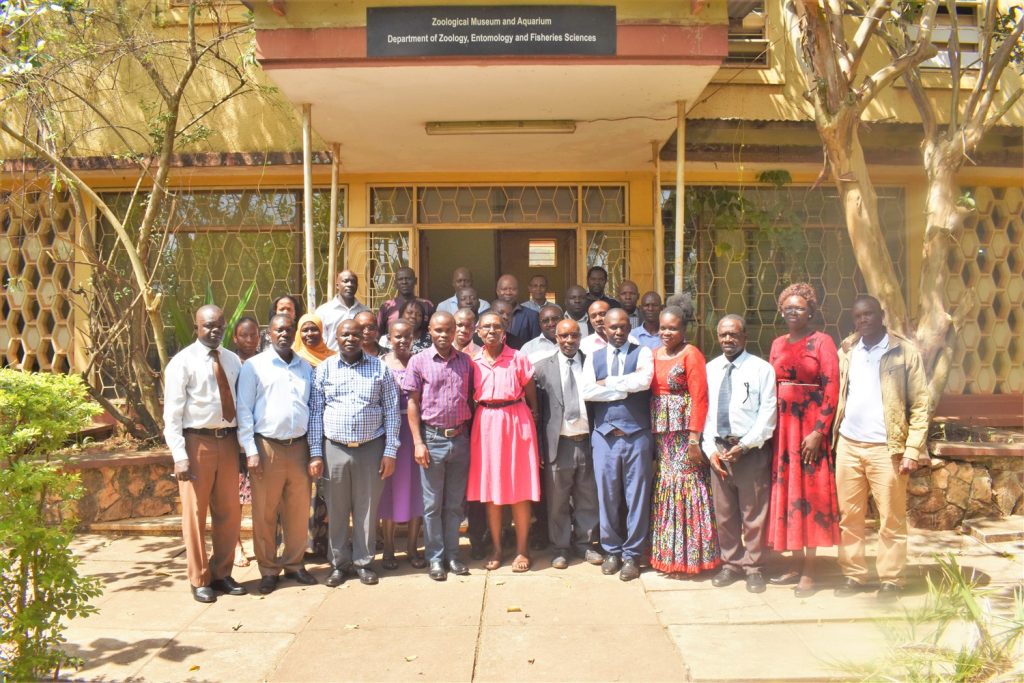Overview
Basic biological research offered by the School of Biosciences at the College of Natural Sciences (CoNAS), more so at the Department of Zoology, Entomology and Fisheries Sciences (ZEFS) requires continuous recruitment of trainees to ensure its sustainability at Makerere University. Over the years, there has been a decline in the number of students admitted to offer biological courses at the School of Biosciences due to poor performance, but also the negative perception about the courses. These courses are often termed as “FLAT” during career guidance at high school, an indication that even the career teachers do not have a clear understanding of the Bachelor of Science degree programme. The perception that the programme is flat with no job prospects makes it unpopular, yet basic sciences are a pivot for several other applied sciences that significantly contribute to the wellbeing of humans and the economy of the country. For example, studies in basic Zoology, Botany, Chemistry and Biochemistry are a basis for effective understanding of applied courses such as plant breeding, vector control, wildlife management, plant pollination, environmental conservation, veterinary science, and human health management, among others. The decline in uptake of these programmes is a big challenge as it is likely to affect the learning of applied sciences.
The reduced recruitment of students into basic sciences has long term implications of missing on key scientists to support research in various scientific fields, yet the graduates of Bachelor of Science degree have numerous opportunities to undertake research and academic work in several national and international research institutions, academic institutions, and the private sector. The use of the term “FLAT” by career masters reflects the lack of clear understanding of the vast opportunities that this course exposes the candidates to, both in public and private sectors.

Plans to popularise the Bachelor of Science programme
To increase uptake, CoNAS has embarked on a programme to popularize the courses offered at the School of Biosciences among high school science teachers and learners by deciphering the myths associated with the Bachelor of Science degree. Broadly, the action aims at arousing the interest and improve academic performance among high school students in biology, and ultimately increase the students applying for the courses offered at the Department of Zoology, Entomology and Fisheries Sciences. Specifically, the programme aims to popularize research by early career researchers in the Department of Zoology, Entomology and Fisheries Sciences in selected schools with A-level biology students, as well as biology and career teachers. The Department of Zoology, Entomology and Fisheries Sciences will engage selected schools to share progressive research, experiences and lessons learnt to cultivate/arouse interest among the biological students in high schools. During the engagement sessions, the team will discuss possibilities to improve performance in biology and inform the next course of action.
The programme is coordinated by Dr Godfrey Kawooya Kubiriza, a Lecturer in the Department of Zoology, Entomology and Fisheries Sciences and a postdoc fellow for CECAP. It is part of the activities supported under his project on “Popularizing early career research for increased visibility of the Department of Zoology, Entomology and Fisheries Sciences”.

CoNAS engagement with Secondary School Biology teachers
On 26th July 2023, the CoNAS through the Department of Zoology, Entomology and Fisheries Sciences held a seminar for Secondary School teachers from selected schools around the country. The one-day seminar was funded by the Carnegie Corporation of New York, through the Directorate of Research and Graduate Training at Makerere University. It was intended to bridge the gap between the School of Biosciences, Makerere University and high school biology teachers in Uganda. It was also aimed at sensitising the teachers about the programmes at CoNAS, the importance of the Bachelor of Science programme and the opportunities it presents. The Seminar held at ZEFS was graced by the Commissioner in charge of Crop Inspection and Certification at the Ministry of Agriculture, Animal Industry and Fisheries (MAAIF), Mr. Paul Mwambu; the Principal of CoNAS, Prof. Winston Tumps Ireeta, and senior academics from the School of Biosciences, Makerere University.
During the engagement, academics from the School of Biosciences sensitized the teachers on the programmes in their departments, highlighting the different course units, research activities, career prospects and opportunities, and emphasizing the importance of the BSc programme.
The Dean, School of Biosciences, also Patron of the Biology Society of Uganda (BioSU) delivered a presentation on the past, present and future dynamics of biology, stressing its relevance in driving the world systems in the next century. He also briefed participants on the BioSU and its intended purpose to improve performance in the subject of biology that has been declining over the years. A research conducted in the performance of Biology at the UACE sitting of 2018 whose results were released in February 2019, indicated that a total of 13,061 candidates sat for Biology countrywide, and of these only 1 candidate scored an “A”. That year, only up to 38% of the candidates scored at least an “E” leaving almost 80% failed (score O or F). In the next year’s sitting of 2019, only 44 candidates countrywide scored “A” in Biology. This trend was found quite repeated several times before 2018 and has not improved to-date post COVID-19. To solve this problem, Makerere University through the School of Biosciences at CONAS in partnership with the College of Education and External Studies (CEES) under the supervision of the office of the Deputy Vice Chancellor in charge of Academic Affairs has embarked on a programme to identify the root causes of poor performance, by undertaking a detailed and carefully planned analysis of the qualifications, competence, and availability of Biology teachers and technicians at A’ level; the scope- breadth and depth of Biology curriculum at A’ level; how topics are segregated or not segregated in different UNEB past papers of Biology at A’ level in comparison to other A’ level subjects; the state of laboratory and field infrastructure for teaching Biology at A’ level; and attitudes of learners/students towards Biology at A’ level.
During his presentation, Dr Tugume appealed to government to support and promote skilling programmes, noting that there are many people who have not had an opportunity to acquire University education but are doing wonders because of the skills attained from vocational training.
At the same meeting, Dr Kubiriza presented the research activities at the College, specifically in the Department of ZEFS, whereas Mr. Paul Mwambu, Commissioner in charge of Crop Inspection and Certification at MAAIF narrated how his study of the Bachelor of Science programme had exposed him enormous employment opportunities.

During the engagement, the secondary school teachers shared the challenges they experience and brainstormed on strategies that can be used to demystify the negativity about the Bachelor of Science programme. They also shared ideas on how to improve performance in subject of biology, emphasizing the need to review the syllabus and to retool the teachers. “The syllabus is so wide and this could be one of the lead causes of poor performance in the subject,” Prof. Tugume noted.
In his remarks, the Principal of CoNAS, Prof. Winston T. Ireeta emphasized the importance of career guidance and sharing of resources to improve performance. He pledged the College support towards secondary school career guidance programmes and retooling of teachers.


